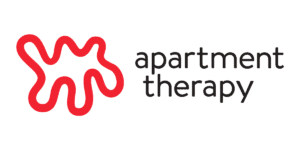
Self-Esteem vs. Self-Confidence, And Which To Focus On
Self-Esteem vs. confidence: they may seem like synonyms, right? And in some ways, they are similar concepts. However, if you tend to put yourself down
CBT is rooted in the idea that someone’s perception of events (not the actual event) determines how they will feel and act in response to that perception. And it works by helping people adjust the thoughts that influence their feelings and behavior.
CBT is one type of psychological treatment that helps you understand and the difference between thoughts, beliefs, and emotions so that you can gain more positive and productive perspectives that actually resonate.
This creates new neural pathways in your brain that help you get less caught up in your mind, and instead, expand your understanding of situations so you start to feel better.
Who Benefits from Cognitive Behavioral Therapy (CBT)?
If you are seeking real change in how you think and behave, CBT is a great option for you. Cognitive Behavioral Therapy is goal-oriented and can help retrain your brain to find more inner peace in the long run. CBT is a great option for:
People who suffer from anxiety or panic attacks
Individuals who are suffering from hopelessness and depression
Anyone who wants to improve confidence and self-eseteem
Folks that avoid social situations for fear of what others think
Someone with intense fears or phobias
Individuals who experience intrusive thoughts for no reason
Since Cognitive Behavioral Therapy works by helping people understand the way their thoughts influence their behavior, the people who benefit the most from CBT are those who already have a grasp on how they think and perceive themselves.
Therapists who offer Cognitive Behavioral Therapy to their clients will typically have their own CBT style and integrate other therapeutic approaches to best suit each individual they are working with.
I combine a psychodynamic approach to CBT because it’s insight-oriented and helps you gain a deeper awareness of behavior patterns for more lasting change.
My goal is to help my clients find some inner peace while improving their self-esteem and reducing panic attack-inducing anxiety.
Other CBT techniques utilized include:
To schedule an appointment, click below.

If you are seeking real change in how you think and behave, CBT is a great option for you. Cognitive Behavioral Therapy is goal-oriented and can help retrain your brain to find more inner peace in the long run.
Right now your mind is accustomed to thinking a certain way. Your brain has forged a pattern of thinking that is causing you to automatically draw negative conclusions about yourself and your life that are not necessarily true.
With Cognitive Behavioral Therapy (CBT), you become aware of these thoughts, the mistaken beliefs behind your thoughts, and learn to create new, more positive and productive thoughts that you actually believe. These thoughts have the power to transform how you exist in the world, which then has the power to transform your life.
And look, retraining your brain takes real conscious effort and attention. But think of it like a workout – the more you do it, the easier it gets. You can start to view yourself in a more positive light – believe me, I’ve seen it!
I’m not here to tell you what to do; I’m here to empower you as you work towards your goals. Let’s explore what’s dragging you down so you can move forward with the life you want.
Get to know me and my approach.
Don’t wait for therapy to start to begin working on yourself. Read the posts below to gain deeper insight into your patterns.

Self-Esteem vs. confidence: they may seem like synonyms, right? And in some ways, they are similar concepts. However, if you tend to put yourself down

If you’re feeling stuck or lost, it is likely that you are having some confusion about who you are and what you truly want out

You’ve probably heard about the benefits of practicing mindfulness. It can help reduce anxiety, increase self-awareness, encourage kindness, and even improve tolerance around physical pain.
Therapy gives you a safe, confidential space to talk about whatever is on your mind. Together, we can figure out how you can best cope with whatever you’re struggling with.
In our sessions, you will do more than just vent. You’re going to find new ways of thinking about your situation and managing your emotions.
What I’ll also say is that sometimes, you may look forward to going to therapy, other times you might dread it. Sometimes you might feel really good after a session, and other times you might feel exhausted or really sad.
There may be days where you have a ton to talk about, and other days where you feel like there isn’t much to say.
Some people find it helpful to jot down notes throughout the week so they remember what they want to bring up. But even on days where you have no agenda, your session can be as fruitful as any other.
Therapy can dredge up a lot of buried feelings, and sorting them all out is difficult, and takes time. But the great thing about therapy is aren’t doing it alone.
Our first session is a little bit like a warm up. I’ll send some virtual paperwork for you to complete in advance of our first session, which includes a questionnaire for you to fill out.
When we meet, we will review that information and anything else you want me to know. My goal for our first session is to understand what’s troubling you, why you’re seeking therapy, and get an understanding of what you’d like to accomplish during our time together.
For you, it is a great opportunity to ask any questions and see if you feel comfortable working together.
Good question! I always say – go with your gut. I recommend you check out my About Page and My Blog to see if what I have to say resonates.
You can also fill out the form below to schedule a consult call. If I don’t think I can help you with what you’re going through, I will let you know, and provide a referral for someone who is more aligned with your needs.
I recommend you come in once a week to get the most out of therapy. If you want to see changes, it’s important to make a commitment to yourself and show up. After some time, if you want to move to every other week, we can have a discussion about it.
You can view my current rates here. I offer a limited number of sliding scale slots in my practice for anyone with financial need, so please reach out if that’s the case and we can discuss further.
It depends on why you’re in therapy and what you’re hoping to get out of it.
Many people feel relief after the first session. And oftentimes you’ll make some progress in 6- 12 weeks.
If you’re coming in because of a crisis or life transition, therapy can last around 6 months to a year.
If you’re looking to address more deeply rooted patterns of behavior, therapy might last longer.
I have found that many of the people I work with deeply value having the time and space address their emotional health. As you start to feel better, we can assess where you are with your goals, see if any new issues have popped up that may be worth addressing, or if it’s time to end therapy.
My door is always open – even if we terminate, you are welcome to reach out at any time to check in.
Schedule a free 15-minute consult call to learn more about starting therapy together.








I write about mental wellbeing and the never-ending journey towards self-fulfillment. Sign up below to get notified when I post a new article. (I'll never spam you. I promise.)
Paige Rechtman, LMHC © 2024
Get the most out of your journaling with my free guide + 30 reflective prompts.
I’ll never spam you. I promise.